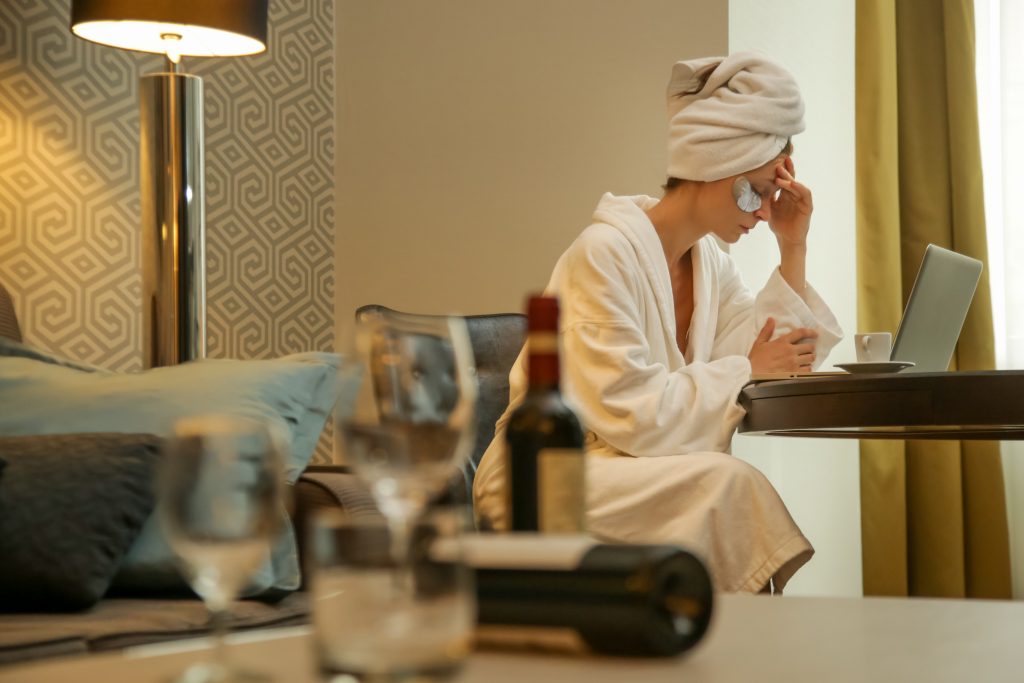
Drinking alcohol has been widely accepted as an occasional social activity. However, as with many other things in life, alcohol must only be consumed in moderation. Excessive alcohol has been proven to be harmful to one’s health and is linked to conditions like gastrointestinal bleeding, stroke, liver disease, and heart disease.
Also, if you don’t control your alcohol intake, you’re more likely to exhibit negative behaviors which may affect your life and the well-being of the people around you. Impaired body coordination due to alcohol is also risky to your own wellbeing, since you can hurt yourself or fail to avoid obstacles while you’re out in public.
Alcohol consumption can become a harmful habit for people who use it to cope with pressures in life. If the habit is already interfering with your personal life, relationships, or career, it’s a sign that you need to quit it. And since recovery is quite difficult, you might need a professional that can help you come up with an addiction treatment plan. Aside from that, here are several ways to help you break a drinking habit—one step at a time:
1. Talk To Someone About It
Recovering from alcohol addiction is challenging. If alcohol is already a significant part of your life, simply isolating yourself won’t help you break this habit. Therefore, it would help if you talked to someone about it. There’s a good chance that some people will immediately back your decision to stop drinking, especially your family and close friends.
Your family and friends could be a great source of inspiration to keep going on your path to recovery. Those that genuinely love and care for you will support your choice to stop drinking because they recognize that you want to improve your life and the lives of those around you. Deep down, you know that reducing or abstaining from alcohol is best for everyone. The rehabilitation process can be much more bearable if this support system cheers you on.
Additionally, you might also want to try collaborating with local rehabilitation institutions. It’s also a good idea to join clubs or communities with others that are on the same path as you. You can also join online forums with people who are attempting to quit drinking or have successfully become sober for some time. Joining groups and communicating with people who are or were in the same boat can give you more insight and motivation in your journey towards recovery.
Alternately, you should spend less time with your alcoholic buddies or seek new acquaintances who don’t drink. Turning down drinking sessions may feel awkward at first, but you’ll get used to it. It won’t help if you surround yourself with drinkers all the time because you’ll always be tempted to indulge. You might also want to start looking for new hobbies that can keep you busy. That could be playing a favorite sport, creating arts and crafts, cooking, or even playing some mobile games.

2. Keep A Journal
Writing down your feelings and thoughts in a journal might not come naturally to everyone. But keeping a journal can be a terrific method to monitor your progress and can support you as you work through any emotions you experience along the way. It enables you to analyze the patterns you’re observing and helps you re-strategize whenever necessary.
In a private journal, you can be completely honest with yourself and work to identify potential obstacles in your strategy. You might also plan how you’ll bounce back if things go wrong. When you fall short of a goal, don’t be too hard on yourself. Take a glance at your notebook to remind yourself how far you’ve come and work on getting back on track.
3. Change Your Environment
As mentioned earlier, finding new friends or acquaintances who don’t drink is a good strategy. After all, it’s difficult to break a drinking habit if you have friends who regularly visit a local bar or pub after a long day. You don’t necessarily have to cut your friends off, but you just have to avoid going anywhere near alcohol.
Additionally, eliminating alcohol from your home is an excellent place to start. This is something you can fully control. With no alcohol at home, you won’t be tempted to drink up whenever you feel stressed out.
Moreover, you must seek out a fresh, non-alcoholic beverage to sip. Select a substitute beverage that you genuinely like and stock up on that. This could help you stick to your strategy because whenever ‘cravings’ hit you, you’ll be drinking that beverage instead. If you want to DIY a non-alcoholic beverage, consider mixing sparkling water with various fruits and juice combinations. You are free to get creative with this one.
Furthermore, it would help if you keep yourself active. It would be best to find healthy distractions that can keep you occupied because idleness can cause you to think about having another drink. If you were accustomed to having a drink at a specific time, it’s pretty normal to crave alcohol at that time, too. So, it would help if you found another activity to occupy yourself with in those times. It might be cooking, exercising, painting, or playing sports.
4. Know Your Why
Knowing your ‘why’ will help you stay on track on your road towards recovery. There might be days that you’ll feel like slipping and failing, but when you know why you started this journey, it’s easier to refocus on the goal and keep going.
Understand why you started this journey. Maybe it was because you realized the negative health effects of alcohol consumption, and you want to improve your life. Maybe you were not proud of the person you became, or you want to set a good example for your kids. Whatever the case, you need to be motivated to stay on the course. It would be best to write them down in a journal or write them on sticky notes in your room to serve as daily reminders.
5. Avoid Triggers
As previously stated, some people use alcohol to deal with their problems. People often have triggers that make them want to drink. Anxiety, loneliness, tension, rejection, sadness, and other emotions are the most common triggers. For example, if things didn’t go well for you at work, you may become apprehensive and stressed, prompting you to consume alcohol even on a Monday.
Furthermore, specific environments can trigger a strong desire to drink. For example, if you go to a party, you will certainly want to have a drink or two because everyone else is drinking and having fun. You won’t be tempted as much if you choose to stay at home.
Therefore, if you wish to overcome a drinking habit, it’s best to recognize your triggers and stay away from them. You can turn down parties or social events that would most certainly serve alcoholic drinks.
To avoid emotional triggers, however, you must learn mindfulness techniques that can help you stay calm in stressful situations. The most basic mindfulness technique has four steps. These are:
- Stop or pause whatever you’re doing or saying.
- Take deep breaths slowly and count as you breathe in and out.
- Observe your own thoughts and feelings, process them for a while and acknowledge that those are not permanent.
- Proceed with an activity that can support or release some of the tension or negative feeling. This includes talking to a friend or writing down the experience in a journal.
6. Exercise Regularly
Exercise can be a healthy substitute for drinking alcohol. Exercise is thought to provide benefits for your psychological well-being in addition to its positive effects on your physical and mental health. Exercising can help you feel better about yourself. You can hit the gym to de-stress and keep your body busy rather than drinking alcohol to deal with anger or tension. Alternatively, you can invest in some workout equipment and exercise at home. Exercising at home is ideal, especially if you want to avoid passing through bars or clubs.
Conclusion
Excessive alcohol consumption has devastating effects—not just on one’s physical health, but on one’s mental and emotional health as well. It can also severely affect personal growth and relationships with other people. A bad drinking habit would make it difficult for you to foster healthy relationships or even hold down a regular job.
Acknowledging that you have a drinking problem is just the first step of a long journey towards recovery. You need to make significant lifestyle changes and commit to them. Writing down your thoughts and feelings in a private journal can help you set clear goals that can motivate you to move forward from time to time. Finding new hobbies and avoiding triggers can also keep you on track.
Working on yourself also means you have to seek support in the right places. This means finding like-minded people who are on the same journey as you or getting guidance from people who have been in your shoes before. Having a strong support system can help you get through the hardest days in your journey toward recovery.









